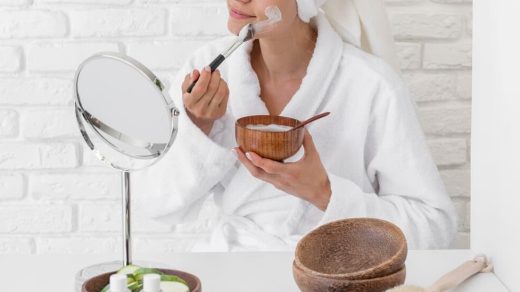Living a healthy life doesn’t have to be complicated or expensive. Many people think they need fancy equipment, strict diets, or perfect schedules to be healthy, but that’s not true.
The jalbitehealth guide shows you that simple changes can make a big difference in how you feel every day.
What makes the jalbitehealth guide special is that it treats you like a real person with a real life. It doesn’t expect you to have endless time or money.
Instead, it gives you practical ideas that work for busy people, parents, students, and anyone who wants to feel better without turning their whole life upside down.
This guide understands that health isn’t just about your body. Your mind, your relationships, and your daily habits all play important roles in how healthy and happy you feel.
The jalbitehealth guide helps you see these connections and shows you how to improve all areas of your life step by step.
You don’t need to wait for the perfect time to start taking better care of yourself. The jalbitehealth guide meets you where you are right now and helps you move forward from there.
JalbiteHealth

Whether you’re dealing with health problems, feeling stressed, or just want to have more energy, this guide has practical solutions that really work in everyday life.
Understanding the Jalbitehealth Approach
The jalbitehealth guide works on a simple idea: your health is like a garden that needs different types of care to grow well.
Just like a garden needs water, sunlight, good soil, and protection from weeds, your health needs attention in several areas to flourish.
This approach is different because it doesn’t tell you to ignore parts of your life to focus on just one thing. Instead, it helps you see how everything in your life affects your health.
When you understand these connections, you can make choices that help multiple areas at the same time.
For example, when you go for a walk with a friend, you’re getting exercise for your body, fresh air for your lungs, social time for your mental health, and stress relief all at once.
The jalbitehealth guide helps you find these kinds of win-win activities that make your life better in many ways.
The approach is also realistic about challenges. It knows that some weeks will be harder than others, that life gets busy, and that sometimes you’ll make choices that aren’t perfect.
That’s okay. The goal isn’t perfection – it’s progress over time.
Core values of the jalbitehealth approach:
- Health improvements should fit into your real life
- Small changes are more powerful than big ones
- Every person’s health journey is different
- Setbacks are normal and don’t mean failure
- Taking care of yourself helps you take care of others
This way of thinking about health helps you build habits that last. Instead of trying to change everything at once and getting overwhelmed, you make one small improvement, let it become natural, and then add another. Over time, these small changes create big results.
Holistic Health: A Comprehensive View
Holistic health means understanding that everything in your body and life is connected.
The jalbitehealth guide uses this approach because it works better than trying to fix one problem at a time while ignoring everything else.
Think about a time when you were worried about something important. You probably noticed that worry affected more than just your thoughts.
Maybe your stomach felt upset, you had trouble sleeping, or you got headaches. This shows how your mental state directly affects your physical body.
The same thing happens in positive ways, too. When you do something good for your body, like eating a healthy meal or getting enough sleep, you often notice that your mood improves and you can think more clearly. This is why the holistic approach works so well.
The jalbitehealth guide teaches you to pay attention to these connections in your own life. Once you start noticing them, you can use them to your advantage.
Instead of thinking about health as a list of separate tasks, you start seeing it as taking care of one whole, connected system – you.
How different health areas work together:
| When You Improve This | You Also See Benefits Here | Simple Example |
|---|---|---|
| Sleep quality | Energy, mood, immune system, decision-making | Going to bed 30 minutes earlier improves your whole next day |
| Stress management | Digestion, muscle tension, relationships, productivity | Deep breathing during traffic jams helps your stomach and your patience |
| Social connections | Mental health, motivation, physical activity, longevity | Joining a walking group gives you exercise and friendship |
| Nutrition | Energy, mental clarity, mood, sleep quality | Eating regular, balanced meals stabilizes both blood sugar and emotions |
Understanding these connections helps you make better choices because you can see the bigger picture.
When you’re deciding whether to stay up late watching TV or go to bed on time, you remember that good sleep will help you feel better, think clearly, and have more energy tomorrow.
Nutrition: Fueling Your Body Right
Good nutrition is simpler than many people think. The jalbitehealth guide focuses on basic principles that have worked for humans for thousands of years, before anyone worried about complicated diets or special supplements.
The most important thing about nutrition is consistency. Eating pretty well most of the time is much better than eating perfectly for a few days and then giving up. Your body needs steady, reliable fuel to work its best.
Think of food as information you’re giving your body. When you eat fresh, whole foods, you’re telling your body, “I’m giving you what you need to be strong and healthy.” When you eat mostly processed foods, you’re sending a different message.
Simple nutrition rules that work:
- Eat regularly: Don’t skip meals or go long periods without eating. This keeps your energy steady and prevents overeating later.
- Include protein at every meal: Protein helps you feel satisfied and keeps your muscles strong. Good sources include eggs, beans, nuts, fish, and lean meats.
- Fill half your plate with vegetables: Vegetables provide vitamins, minerals, and fiber that your body needs. Try to include different colors throughout the week.
- Choose whole grains: Brown rice, oats, and whole wheat bread give you longer-lasting energy than refined grains.
- Snack smart: When you need a snack, combine protein with fruits or vegetables. Apple slices with peanut butter or carrots with hummus are great examples.
Easy meal planning approach:
| Meal | Basic Formula | Quick Examples |
|---|---|---|
| Breakfast | Protein + Whole grain + Fruit | Oatmeal with nuts and berries |
| Lunch | Protein + Vegetables + Healthy fat | Salad with chicken and olive oil dressing |
| Dinner | Protein + Vegetables + Whole grain | Baked fish with steamed broccoli and brown rice |
| Snacks | Protein + Fruit or vegetable | Greek yogurt with fruit |
The jalbitehealth guide also emphasizes drinking enough water.
Many people don’t realize they’re dehydrated, which can cause fatigue, headaches, and difficulty concentrating. Aim to drink water throughout the day, not just when you feel thirsty.
One of the best parts of the nutrition advice in this guide is that it doesn’t forbid any foods. Instead, it teaches you how to enjoy treats in moderation while making sure most of your food choices support your health.
This approach is much easier to maintain long-term than strict diets that eliminate entire food groups.
Exercise: Moving Your Body
The jalbitehealth guide takes the pressure off exercise by showing you that movement is natural and can be enjoyable. You don’t need to become an athlete or spend hours in a gym. You just need to move your body regularly in ways that feel good to you.
Movement is medicine for your body and mind. It strengthens your heart, builds your muscles, improves your balance, and releases chemicals in your brain that make you feel happier and more relaxed. The key is finding ways to move that you actually enjoy.
Many people give up on exercise because they try to do too much too soon, or they choose activities they don’t really like. The jalbitehealth guide encourages you to experiment until you find movement that feels like play rather than work.
Different ways to move your body:
- Walking: This is the most natural human movement. You can walk anywhere, anytime, and it’s free. Start with just 10-15 minutes and gradually build up.
- Dancing: Put on music you love and move however feels good. Dancing improves coordination, balance, and mood while giving you a great workout.
- Gardening: Digging, planting, and weeding provide strength training and flexibility work while connecting you with nature.
- Playing with kids or pets: Throwing a ball, playing tag, or walking a dog gives you exercise while strengthening relationships.
- Household activities: Cleaning, organizing, and home improvement projects can be surprisingly good exercise when done with energy and intention.
Weekly movement goals for beginners:
| Week | Goal | Examples | Duration |
|---|---|---|---|
| 1-2 | Build the habit | Daily 5-minute walks | 5 minutes |
| 3-4 | Increase time | Daily 10-minute walks or activities | 10 minutes |
| 5-6 | Add variety | Alternate walking with stretching or dancing | 15 minutes |
| 7-8 | Build strength | Include simple bodyweight exercises | 20 minutes |
The jalbitehealth guide reminds you to listen to your body and adjust your activities based on how you feel. Some days you might have lots of energy for vigorous movement, while other days gentle stretching is more appropriate. Both types of movement are valuable.
Remember that any movement is better than no movement. If you can only manage five minutes, that’s still beneficial. If you miss a day, just start again the next day without guilt or self-criticism.
Mental Well-Being: Nurturing Your Mind
Your mental health affects everything else in your life, which is why the jalbitehealth guide gives it so much attention. Taking care of your mind isn’t selfish or optional – it’s essential for living a healthy, fulfilling life.
Mental well-being doesn’t mean being happy all the time or never having problems. It means having the skills and resources to handle life’s challenges without being overwhelmed by them. It means knowing how to recover from setbacks and maintain hope for the future.
The good news is that many of the things that support mental health are simple daily practices that anyone can learn. You don’t need special training or expensive therapy to start taking better care of your mental well-being.
Daily practices for mental health:
- Start each day with intention: Before checking your phone or jumping into tasks, take a few minutes to think about how you want to feel and what’s most important for the day.
- Practice gratitude: Notice good things in your life, even small ones. This trains your brain to focus on positives rather than just problems.
- Take breaks: Your mind needs rest just like your body does. Take short breaks throughout the day to stretch, breathe, or step outside.
- Limit negative input: Pay attention to how different activities affect your mood. If watching the news or scrolling social media makes you feel worse, set limits on these activities.
- Connect with others: Human connection is essential for mental health. Make time for conversations, hugs, and shared activities with people you care about.
Managing difficult emotions:
| Emotion | What It Tells You | Healthy Responses |
|---|---|---|
| Anxiety | Something feels uncertain or threatening | Deep breathing, planning, asking for support |
| Sadness | Something important has been lost | Allow yourself to grieve, seek comfort, and practice self-care |
| Anger | A boundary has been crossed | Take time to cool down, address the issue calmly, and exercise |
| Overwhelm | Too much is happening at once | Prioritize tasks, delegate when possible, take breaks |
The jalbitehealth guide teaches that all emotions are normal and valuable. Instead of trying to avoid difficult feelings, you learn healthy ways to experience them and move through them. This builds emotional resilience over time.
It’s also important to recognize when you need professional help. If you’re struggling with persistent sadness, anxiety, or other mental health concerns that interfere with your daily life, reaching out to a counselor or therapist is a sign of strength, not weakness.
The Role of Community in Health
Humans are naturally social creatures, and the jalbitehealth guide recognizes that strong relationships are just as important for health as good food and regular exercise.
People with strong social connections live longer, recover from illness faster, and report higher levels of happiness and life satisfaction.
Community doesn’t just mean having lots of friends. It means having meaningful connections with people who care about you and whom you care about in return.
This might include family members, friends, neighbors, coworkers, or people who share your interests or values.
Building and maintaining relationships takes effort, but it’s effort that pays back in many ways.
When you invest in relationships, you create a support network that helps you through difficult times and amplifies your joy during good times.
Ways to strengthen your community connections:
- Be a good listener: When someone talks to you, give them your full attention. Put down your phone, make eye contact, and really hear what they’re saying.
- Offer help before being asked: If you see someone struggling with something you could help with, offer your assistance. This might be as simple as carrying groceries or as involved as helping with a project.
- Share your own struggles: Don’t always try to seem perfect. When you share your challenges appropriately, it permits others to be real with you too.
- Celebrate others’ successes: When good things happen to people in your life, celebrate with them genuinely. This strengthens your relationships and creates positive feelings.
- Show up consistently: Reliability is one of the most valuable qualities in relationships. When you say you’ll do something, follow through.
Building community in different life stages:
| Life Stage | Common Challenges | Community-Building Strategies |
|---|---|---|
| Young adult | Leaving school networks, starting a career | Join hobby groups, attend community events, and be open at work |
| Parent | Less free time, focus on children | Connect with other parents, involve family in community activities |
| Middle age | Busy with career and family responsibilities | Volunteer for causes you care about, maintain old friendships |
| Older adult | Retirement, health changes, loss of peers | Stay involved in the community, mentor younger people, and join senior groups |
The jalbitehealth guide also emphasizes the importance of being the kind of person others want to be around. This means being kind, reliable, interested in others, and willing to contribute to relationships rather than just taking from them.
Remember that quality matters more than quantity when it comes to relationships. A few deep, meaningful connections are more valuable for your health and happiness than many superficial ones.
The Importance of Adaptability
Life is constantly changing, and the jalbitehealth guide teaches that your ability to adapt to these changes is crucial for long-term health and happiness. Adaptability doesn’t mean giving up your values or goals – it means being flexible in how you pursue them.
People who are good at adapting to change tend to experience less stress, recover from setbacks more quickly, and find opportunities in difficult situations. These are skills you can develop with practice, just like any other skills.
The first step in building adaptability is accepting that change is a normal part of life. Instead of spending energy fighting against changes you can’t control, you learn to put that energy into responding in healthy ways.
Building adaptability skills:
- Practice problem-solving: When you face a challenge, brainstorm multiple possible solutions before settling on one. This trains your brain to be flexible and creative.
- Embrace learning: Every new situation teaches you something. Ask yourself what you can learn from each experience, especially difficult ones.
- Develop multiple interests: Having various activities and interests gives you more options when circumstances change. If one area of your life becomes difficult, you have other sources of satisfaction.
- Build a support network: Strong relationships provide emotional support and practical help during times of change.
- Take care of your basic needs: When you’re well-rested, well-fed, and physically healthy, you handle stress and change much better.
Common life changes and adaptation strategies:
| Type of Change | Adaptation Strategies | What to Remember |
|---|---|---|
| Job loss or career change | Update skills, network, and consider new opportunities | This is a chance to reassess your goals |
| Health challenges | Focus on what you can control, seek support, and modify goals | Small improvements still matter |
| Relationship changes | Communicate openly, seek counseling if needed, practice self-care | People grow at different rates |
| Moving to a new place | Explore your new environment, join local groups, stay connected to old friends | Adventure and opportunity await |
The jalbitehealth guide reminds you that adaptability doesn’t mean you have to like every change that happens.
It’s normal to feel sad, angry, or scared when things change unexpectedly. The key is processing these feelings in healthy ways and then focusing on what you can do to move forward.
Building adaptability also means developing confidence in your ability to handle whatever comes your way.
Each time you successfully navigate a change or challenge, you prove to yourself that you’re stronger and more resourceful than you might have thought.
Also Check:
- How Long Can You Go Without Food
- How Long to Smoke a Brisket Per Pound
- Rinvoq Ruxience Copay Savings Card
- LifeDNA vs 10X Health Gene Testing
Conclusion:
The jalbitehealth guide offers a practical, realistic approach to health that fits into real life.
It recognizes that you’re not just a body that needs exercise and healthy food – you’re a whole person with relationships, responsibilities, dreams, and challenges.
This guide’s strength lies in its understanding that sustainable health improvements come from small, consistent changes rather than dramatic overhauls.
When you try to change everything at once, you often end up changing nothing permanently. When you focus on one small improvement at a time, you build momentum that leads to lasting transformation.
The holistic approach of the jalbitehealth guide helps you see how different areas of your life support each other. When you improve your nutrition, you have more energy for exercise.
When you exercise regularly, you sleep better and manage stress more effectively. When you manage stress well, you make better decisions about food and relationships. Everything connects.
Perhaps most importantly, this guide teaches you to be patient and compassionate with yourself throughout your health journey.
There will be days when you don’t make the healthiest choices, weeks when life gets too busy for your usual routines, and times when you feel like you’re not making progress fast enough. This is all normal and doesn’t mean you’re failing.
Remember these key principles:
- Start where you are, not where you think you should be
- Progress is more important than perfection
- Small changes compound into big results over time
- Your health journey is unique to you
- Taking care of yourself enables you to care for others
- Every day is a new opportunity to make choices that support your well-being
The jalbitehealth guide is not about following someone else’s perfect plan – it’s about learning to make decisions that support your health and happiness in your unique circumstances.
Use the principles and strategies in this guide as tools to create your personalized approach to wellness.
Your health is one of your most valuable possessions, and investing in it pays dividends in every area of your life.
Start with one small change today, and let the jalbitehealth guide support you as you build the healthy, balanced life you deserve. Remember, the best time to start taking care of your health was yesterday, but the second-best time is right now.



